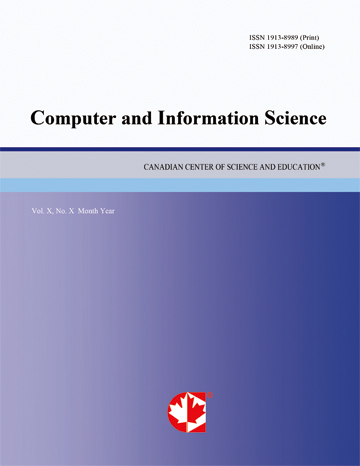Efficient Audio Fingerprint Application Verification Using the Adapted Computational Geometry Algorithm
- Marios Poulos
- Ioannis Deliyannis
- Andreas Floros
Abstract
An earlier work of the authors introduced an adapted version of the Computational Geometry Algorithm (CGA) designed to analyse an audio stream and produce a unique coding-independent fingerprint. As the adaptability and the induced calculation load of the proposed algorithm form a key characteristic for multiple applications, our current investigation aims to measure its performance and stability in dynamic, real-time applications, i.e., in large audio library indexing and dynamic audio recognition. In addition, we investigate the fact that context similarity is also evident across fingerprints; hence a number of comparisons are used to explore the possible uses of this highly desirable algorithmic feature.
- Full Text:
 PDF
PDF
- DOI:10.5539/cis.v6n1p70
Journal Metrics
WJCI (2022): 0.636
Impact Factor 2022 (by WJCI): 0.419
h-index (January 2024): 43
i10-index (January 2024): 193
h5-index (January 2024): N/A
h5-median(January 2024): N/A
( The data was calculated based on Google Scholar Citations. Click Here to Learn More. )
Index
- BASE (Bielefeld Academic Search Engine)
- CNKI Scholar
- CrossRef
- DBLP (2008-2019)
- EuroPub Database
- Excellence in Research for Australia (ERA)
- Genamics JournalSeek
- GETIT@YALE (Yale University Library)
- Google Scholar
- Harvard Library
- Infotrieve
- Mendeley
- Open policy finder
- ResearchGate
- Scilit
- The Keepers Registry
- UCR Library
- WJCI Report
- WorldCat
Contact
- Chris LeeEditorial Assistant
- cis@ccsenet.org
